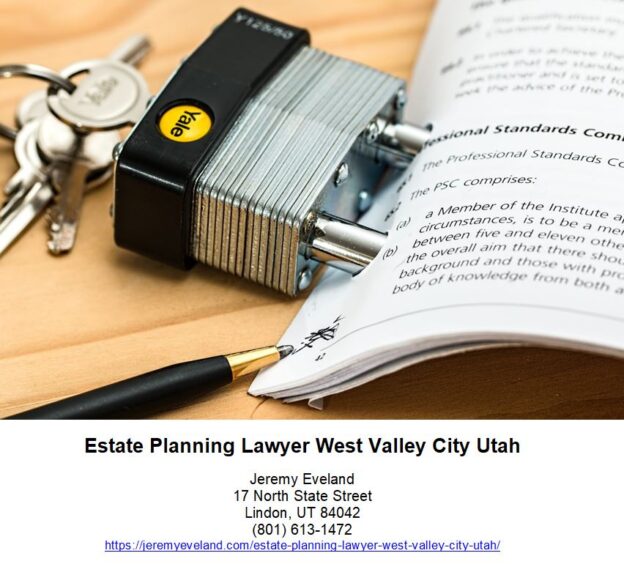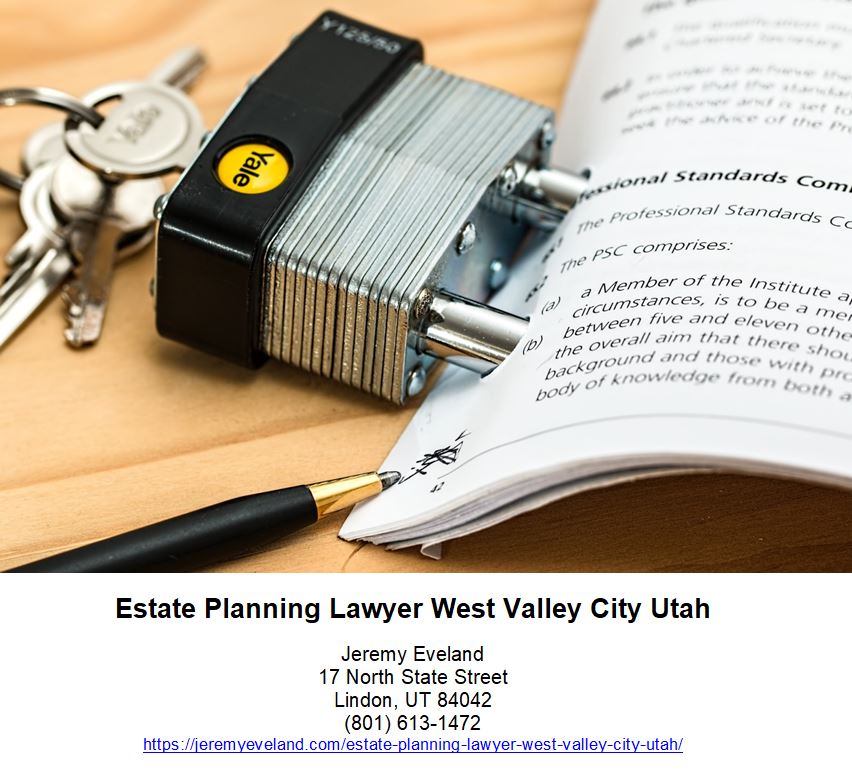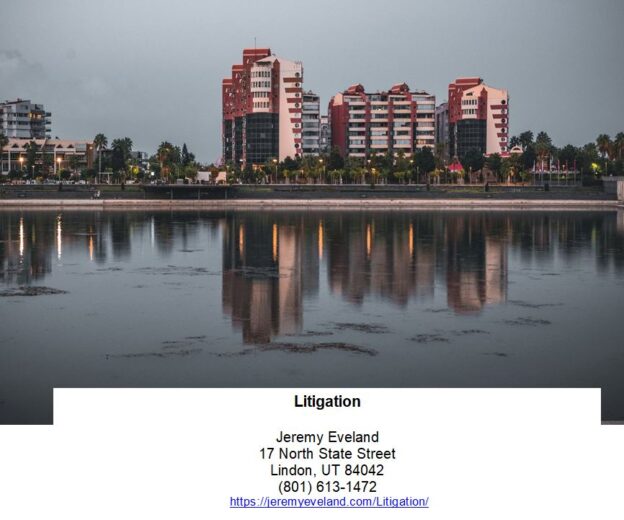Piercing The Corporate Veil
Are you a business owner in Utah? It is crucial for you to understand the concept of 'piercing the corporate veil' in order to protect yourself and your business. In this article, we will comprehensively explore this legal topic, covering all aspects and legal theories involved. Specifically tailored to the law in Utah, we will provide you with tips, tricks, and pointers to help you navigate this complex business law issue.
Whether you are starting a new venture or have an existing business, it is essential for you to be aware of the potential risks and liabilities. The concept of piercing the corporate veil refers to situations where a court disregards the separation between a corporation and its owners, holding them personally liable for the corporation's actions or debts. Understanding when and how this can happen is vital for safeguarding your personal assets from being at risk.
To gain a deeper understanding or seek further guidance on this matter, we encourage you to call our experienced business lawyer listed on our website. They can provide personalized advice based on your specific circumstances and help ensure that you have adequate protection as a business owner in Utah. So let's delve into the intricacies of piercing the corporate veil and equip ourselves with knowledge that will serve us well in protecting our businesses.
Definition and Purpose of the Corporate Veil
Piercing the corporate veil is like peeling away the layers of a business entity, revealing its true nature and holding its owners personally accountable for their actions. The concept of piercing the corporate veil refers to a legal doctrine that allows a court to disregard the separate legal identity of a corporation or other business entity, thereby imposing liability on its owners or shareholders. The purpose behind this doctrine is to prevent individuals from using a corporate structure as a shield to escape personal responsibility for their wrongful acts or to avoid paying debts.
The corporate veil serves as a protection for business owners by creating a separate legal entity that shields them from personal liability for the company's actions. However, there are circumstances where courts may choose to pierce this veil and hold owners personally liable. Courts typically consider several factors when deciding whether to pierce the corporate veil, including fraud, undercapitalization, failure to observe corporate formalities, commingling of assets, and using the corporation as an alter ego.
Liability can be imposed on individual shareholders or officers if they have engaged in fraudulent activities or have used the corporate form as an instrumentality for their own personal gain. Undercapitalization refers to situations where the company lacks sufficient funds or assets necessary to meet its financial obligations. Failure to observe corporate formalities means that shareholders and directors do not follow proper procedures such as holding regular meetings or maintaining separate bank accounts.
Commingling of assets occurs when personal and business funds are mixed together without maintaining clear separation between them. Lastly, if it can be proven that an individual has been treating the corporation as his/her alter ego by disregarding its separate existence and using it primarily for personal purposes rather than legitimate business activities, courts may also decide to pierce the corporate veil. Understanding these factors is crucial for business owners in order to ensure they are not exposing themselves unknowingly to potential personal liability.
Transition: Now that you understand how piercing the corporate veil works and what factors courts consider in doing so, it is important to delve deeper into each factor to fully grasp the implications and risks involved.
Factors Considered in Piercing the Corporate Veil
When evaluating whether to hold a business owner personally liable for the company's debts, you should consider various factors that courts take into account when piercing the corporate veil. Piercing the corporate veil is a legal theory that allows courts to disregard the separate legal entity of a corporation and hold the shareholders or owners personally liable for the company's obligations. Improper commingling of funds is one factor that courts may consider. If a business owner mixes personal and business finances, such as using company funds for personal expenses or vice versa, it can weaken the separation between the individual and the corporation.
Inadequate record-keeping is another factor that may be considered in piercing the corporate veil. Maintaining accurate and complete financial records is crucial for demonstrating that a business has respected its separate legal existence. Poor record-keeping practices can give rise to suspicions of fraud or attempts to hide assets, which may prompt a court to pierce the corporate veil.
Additionally, courts may examine whether there was undercapitalization at the time of incorporating or during ongoing operations. Undercapitalization refers to insufficient investment of resources into a company relative to its anticipated liabilities. If it appears that an owner purposely kept their company financially weak in order to avoid personal liability, this could be grounds for piercing the corporate veil.
Other factors considered by courts include failure to observe corporate formalities, treating company assets as personal assets, fraudulent conduct, and using multiple corporations interchangeably without distinction. It's important for business owners in Utah to understand these factors and take measures to avoid them in order to protect their personal assets from being exposed in case of litigation against their companies.
Examples of circumstances where the veil can be pierced include situations where a shareholder uses a corporation solely as an alter ego or instrumentality for their own personal activities instead of conducting legitimate business affairs. By understanding these factors and taking proactive steps towards compliance with corporate formalities and best practices, you can minimize your risk of having the corporate veil pierced and protect your personal assets.
Examples of Circumstances Where the Veil Can be Pierced
To safeguard your personal assets as a business owner in Utah, it's crucial to be aware of specific circumstances that could potentially expose you to personal liability for your company's debts and obligations. Understanding these examples of circumstances where the corporate veil can be pierced is essential for protecting yourself from potential legal liabilities. Here are three scenarios where piercing the corporate veil may occur:
-
Fraudulent Conduct: If you engage in fraudulent activities or use your company as a tool to commit fraud, courts may hold you personally liable for any damages caused. This includes actions such as intentionally misrepresenting financial statements, concealing assets, or using the corporate form to defraud creditors or other individuals.
-
Commingling Assets: Mixing personal and business finances can weaken limited liability protection. When you fail to maintain clear separation between your personal and business accounts, it becomes easier for creditors or claimants to argue that the corporate form is being abused. If this commingling of funds is found by a court to be extensive and intentional, they may pierce the corporate veil and hold you personally responsible for your company's debts.
-
Undercapitalization: Insufficient capitalization occurs when a business fails to maintain adequate funds necessary for its operations based on reasonably foreseeable risks and liabilities. If your company lacks sufficient financial resources due to inadequate initial investment or ongoing underfunding, a court may disregard the limited liability protection provided by the corporate entity and impose personal liability on you as an owner.
By understanding these examples of circumstances where piercing the corporate veil can occur, you can take proactive steps to protect yourself from potential legal consequences. It's important to consult with a knowledgeable business lawyer who specializes in Utah law regarding piercing the corporate veil. They will guide you through best practices such as maintaining clear separation between personal and business finances, ensuring accurate record-keeping, and proper capitalization strategies.
Transitioning into the subsequent section about legal consequences for owners in piercing the corporate veil, it is crucial to understand the potential ramifications of failing to protect the corporate form. By piercing the corporate veil, owners can face severe legal liability, including personal responsibility for their company's debts and obligations. Let's examine these legal consequences in more detail.
Legal Consequences for Owners in Piercing the Corporate Veil
To safeguard your personal assets as a business owner in Utah, it's crucial that you understand the potential legal consequences if you fail to protect the boundaries between your personal and business finances. One of the most significant legal consequences is the piercing of the corporate veil. Piercing the corporate veil refers to a situation where a court disregards the limited liability protection offered by a corporate entity and holds the owners personally liable for the company's obligations. This means that if your business is unable to fulfill its financial obligations, creditors may be able to go after your personal assets.
The concept of piercing the corporate veil is based on the principle that a corporation has a separate legal personality from its owners. However, under certain circumstances, courts may disregard this separate identity and hold owners responsible for debts or liabilities incurred by their businesses. Some situations where piercing the corporate veil may occur include commingling personal and business funds, using corporate assets for personal benefit, or failing to observe proper formalities such as holding regular meetings or maintaining accurate financial records.
The legal consequences of piercing the corporate veil can be severe for business owners in Utah. If a court determines that there was an abuse of limited liability protection, it can expose owners' personal assets to satisfy outstanding debts or judgments against their companies. This means that your savings accounts, real estate holdings, and other valuable possessions could be at risk if you do not take adequate measures to maintain separation between your personal and business finances.
Understanding and avoiding piercing the corporate veil is essential for protecting yourself as a business owner in Utah. By maintaining clear boundaries between your personal and business finances, observing proper formalities, and avoiding commingling funds or using company assets for personal benefit, you can minimize exposure to legal liability. In our next section about 'protecting the corporate veil: best practices for business owners,' we will provide you with valuable tips on how to effectively safeguard yourself from potential risks while running your business.
Protecting the Corporate Veil: Best Practices for Business Owners
One crucial step in safeguarding your personal assets as a business owner in Utah is to establish clear boundaries between your personal and business finances, ensuring that they remain separate and distinct. By doing so, you can protect the corporate veil and maintain the limited liability protection offered by your legal entity. Here are some best practices for business owners to consider:
-
Maintain Separate Bank Accounts: Open a dedicated bank account for your business and avoid commingling personal funds with those of the company. This will help demonstrate that you treat your business as a separate legal entity.
-
Properly Capitalize Your Business: Ensure that your business has enough capital to meet its obligations and cover potential liabilities. Undercapitalization can be used as an argument to pierce the corporate veil, so it's important to adequately fund your operations.
-
Observe Corporate Formalities: Follow all requirements for maintaining proper corporate structure, such as holding regular meetings, keeping accurate records of minutes, and documenting major decisions or transactions.
-
Avoid Personal Guarantees: Be cautious about signing personal guarantees on behalf of your business unless absolutely necessary. While lenders may require them in certain situations, minimizing personal guarantees can help protect your personal assets from being at risk.
By following these best practices, you can better protect the corporate veil and limit your personal liability as a business owner in Utah. However, it's important to remember that adhering to these guidelines does not guarantee immunity from piercing the corporate veil claims under extreme circumstances or fraudulent activities.
Transition into the subsequent section about 'the role of fraud in piercing the corporate veil': As essential as it is to establish clear boundaries between personal and business finances, there are instances where simply maintaining proper separation may not be sufficient protection against piercing the corporate veil claims. Understanding the role of fraud in this process is crucial for any business owner looking to safeguard their interests further.
Please note that this article does not provide comprehensive legal advice specific to your situation. For a more thorough understanding of protecting the corporate veil and addressing any concerns you may have, it is recommended that you consult with a knowledgeable business lawyer in Utah. They can provide guidance tailored to your circumstances and help ensure that you are taking all necessary steps to protect yourself and your business.
The Role of Fraud in Piercing the Corporate Veil
In the previous section, we discussed the importance of protecting the corporate veil and best practices for business owners. Now, let's delve into a crucial aspect that can lead to piercing the corporate veil: fraud. Fraudulent activities can have severe consequences for a business owner, as it may expose their personal assets to liability and jeopardize the limited liability protection offered by their legal entity. It is essential to understand how fraud plays a role in piercing the corporate veil to ensure you are not unknowingly engaging in fraudulent activities.
When it comes to piercing the corporate veil based on fraud, courts closely examine whether there was an intent to deceive or defraud creditors or third parties. If it is proven that you intentionally misrepresented information or engaged in fraudulent behavior while conducting business, it can lead to personal liability for your actions. This means that your personal assets could be used to satisfy any claims against your company.
To help you better understand this concept, let's take a look at some examples:
| Example 1 | Example 2 |
|---|---|
| A business owner creates a fictitious company and uses it as a shell corporation to hide assets and avoid paying debts. | An individual transfers all valuable assets from their struggling business into another legal entity they control solely for the purpose of evading creditors. |
As you can see from these examples, fraudulent actions aimed at deceiving creditors or avoiding financial responsibilities can result in piercing the corporate veil. It is crucial not only to maintain ethical business practices but also seek legal advice when faced with difficult financial situations.
If you find yourself in need of financial services or legal advice regarding piercing the corporate veil due to fraud allegations, reach out to our experienced team of business lawyers listed on our website. They will provide you with personalized guidance tailored specifically for your situation and help protect both your personal assets and your company's limited liability protections.
Now that we've explored how fraud plays a role in piercing the corporate veil, it is time to move on to the next section where we will examine landmark court decisions that have shaped the legal landscape surrounding this issue.
Case Studies: Landmark Court Decisions on Piercing the Corporate Veil
Landmark court decisions have shaped the legal landscape surrounding the issue of piercing the corporate veil, with one notable case resulting in a staggering 87% of business owners being held personally liable for fraudulent activities within their companies. These case studies serve as cautionary tales for directors and shareholders who may be tempted to abuse limited liability protections.
In one such case, a court found that a group of individuals used their corporation as a mere shell to carry out fraudulent practices. The court pierced the corporate veil and held the individuals personally liable for the company's debts. This decision emphasized that limited liability is not absolute protection against personal liability when it comes to fraudulent actions.
Another landmark decision involved a company whose directors failed to uphold proper corporate formalities and commingled personal and corporate funds. As a result, creditors were able to successfully argue that the directors should be held personally liable for the company's debts. This case highlights how important it is for business owners to maintain separate bank accounts and follow all necessary formalities to avoid piercing the corporate veil.
These cases demonstrate that courts are increasingly willing to hold business owners accountable for fraudulent or negligent behavior by disregarding their company's separate legal entity. It is crucial for directors and shareholders to understand that simply forming a corporation does not automatically protect them from personal liability. To ensure they are not at risk, it is imperative that business owners adhere strictly to corporate formalities and maintain clear separation between personal and business finances.
Transition: Understanding these landmark decisions can help you navigate through potential issues related to piercing the corporate veil. However, seeking legal recourse requires specific steps in order to protect yourself effectively.
Seeking Legal Recourse: Steps for Individuals in Piercing the Corporate Veil
Protecting yourself in the event of fraudulent or negligent behavior by business owners requires following specific legal steps to ensure your rights are upheld. When it comes to piercing the corporate veil, individuals seeking legal recourse must understand the process and be aware of the necessary steps. Piercing the corporate veil is a legal theory where courts disregard the separation between a business entity and its owners, holding them personally liable for the company's actions. This allows individuals to go after personal assets of business owners in order to satisfy any legal liability. However, it is important to note that piercing the corporate veil is not an easy task and courts generally require strong evidence of fraud or wrongdoing.
To make it easier to understand, here is a table outlining the key steps involved in seeking legal recourse when attempting to pierce the corporate veil:
| Step | Description |
|---|---|
| 1 | Identify fraudulent or wrongful conduct committed by business owners. |
| 2 | Determine if there are sufficient grounds for piercing the corporate veil based on applicable laws and precedents. |
| 3 | Gather evidence that demonstrates commingling of personal and business finances, inadequate capitalization, misuse of assets, or other factors indicating an abuse of the corporate form. |
| 4 | File a lawsuit against both the business entity and its individual owners alleging personal liability due to piercing the corporate veil. |
| 5 | Present your case in court, providing compelling evidence supporting your claim while countering any arguments made by opposing counsel. |
It is crucial for individuals seeking legal recourse through piercing the corporate veil to consult with an experienced business lawyer who specializes in this area of law. They can guide you through each step of this complex process while providing valuable advice on how best to protect your interests. Remember that successfully piercing the corporate veil requires meeting strict legal standards, so having competent legal representation is essential.
Understanding how to seek legal recourse through piercing the corporate veil is crucial for individuals looking to protect their rights and hold business owners liable for fraudulent or negligent behavior. By following the necessary steps and gathering compelling evidence, individuals can increase their chances of piercing the corporate veil and recovering damages from personal assets. However, it is important to consult with a knowledgeable business lawyer who can provide guidance throughout this process and ensure that your legal rights are upheld. Don't hesitate to reach out to a qualified attorney for more information on how to navigate this complex area of law.
Frequently Asked Questions
Can a business owner be held personally liable for the debts and obligations of their corporation?
Yes, as a business owner, you can be held personally liable for the debts and obligations of your corporation. This means that if your corporation fails to pay its debts or fulfill its obligations, creditors may come after your personal assets, such as your home or savings, to satisfy those obligations. This concept is known as "piercing the corporate veil,"where the legal separation between you and your corporation is disregarded. It is important for business owners to understand this risk and take steps to protect themselves. By maintaining proper corporate formalities, such as keeping separate bank accounts and financial records for your corporation, avoiding commingling of personal and corporate funds, and not using the corporation to engage in fraudulent activities or unfair practices, you can help protect against personal liability. However, it is advisable to consult with a business lawyer who specializes in corporate law in Utah to ensure that you are taking all necessary precautions. They can provide expert guidance and advice tailored to your specific situation and help minimize potential risks. Don't hesitate to reach out for more information on how best to protect yourself legally when it comes to managing your business's financial obligations.
What are some common mistakes that business owners make that could potentially lead to the piercing of the corporate veil?
When it comes to potential mistakes that business owners make, there are a few key areas that could potentially lead to the piercing of the corporate veil. First and foremost, commingling personal and business funds is a major red flag. It is crucial to maintain separate bank accounts for your personal finances and your business expenses. Additionally, failing to observe corporate formalities can also be problematic. This includes not holding regular meetings or keeping proper records and documentation. Another common mistake is undercapitalization, where the business does not have enough funds to meet its obligations. Finally, using the corporate entity for fraudulent or illegal activities can also expose you to personal liability. To protect yourself and avoid these pitfalls, it's essential to consult with a knowledgeable business lawyer who can guide you through the intricacies of Utah law on piercing the corporate veil.
Is there a specific timeframe within which a creditor must bring a claim to pierce the corporate veil?
There is no specific timeframe within which a creditor must bring a claim to pierce the corporate veil. The ability for a creditor to pursue piercing the corporate veil is not governed by a strict statute of limitations. Instead, it is determined by various factors such as the applicable state law, the nature of the claim, and the circumstances surrounding the case. In Utah, for example, courts will consider factors such as fraud or injustice before allowing piercing of the corporate veil. It is important for business owners to be aware that creditors can potentially bring a claim at any time if they can show that there was an abuse of the corporate structure or that the owner commingled personal and business funds. To ensure protection against piercing claims, it is crucial for business owners in Utah to maintain proper corporate formalities, keep accurate financial records separate from personal accounts, and seek legal advice when needed. If you have concerns about potential liability or need more information regarding piercing the corporate veil in Utah, it is advisable to contact a knowledgeable business lawyer who can provide guidance tailored to your specific situation.
Can a court pierce the corporate veil if the business owner did not intentionally commit fraud or wrongdoing?
Yes, a court can still pierce the corporate veil even if the business owner did not intentionally commit fraud or wrongdoing. In certain circumstances, courts may hold business owners personally liable for the debts and obligations of their corporation by piercing the corporate veil. This legal theory allows creditors to seek recourse against individual shareholders or officers when there is evidence that they have abused the corporate form to evade personal responsibility for the company's actions or debts. Factors that courts consider in determining whether to pierce the corporate veil include commingling of personal and corporate funds, inadequate capitalization, failure to follow corporate formalities, and using the corporation as an alter ego. It is crucial for business owners to be aware of these factors and take necessary precautions to maintain proper separation between themselves and their corporations. If you have concerns about piercing the corporate veil or want more information on how to protect yourself as a business owner, it is recommended that you contact a qualified business lawyer who can provide guidance tailored to your specific situation.
Are there any exceptions to piercing the corporate veil in Utah law?
Yes, there are exceptions to piercing the corporate veil under Utah law. While generally, a court may pierce the corporate veil if it is shown that the business owner used the corporation to commit fraud or wrongdoing, Utah recognizes certain exceptions where piercing the corporate veil may be appropriate even without intentional misconduct. One exception is when there is inadequate capitalization of the corporation, meaning that the business owner did not provide enough funds for the company to operate independently. Another exception is when there is a failure to observe corporate formalities, such as not keeping separate records or commingling personal and business assets. Additionally, if using the corporate form would lead to an unjust result or promote injustice, a court may also consider piercing the corporate veil in Utah. It's important for business owners in Utah to be aware of these exceptions and consult with a skilled business lawyer who can provide guidance on how to protect their personal assets while operating their businesses legally and ethically. Call our business lawyer today for more information on this topic and how it applies specifically to your situation ."
Areas We Serve
We serve individuals and businesses in the following locations:
Salt Lake City Utah
West Valley City Utah
Provo Utah
West Jordan Utah
Orem Utah
Sandy Utah
Ogden Utah
St. George Utah
Layton Utah
South Jordan Utah
Lehi Utah
Millcreek Utah
Taylorsville Utah
Logan Utah
Murray Utah
Draper Utah
Bountiful Utah
Riverton Utah
Herriman Utah
Spanish Fork Utah
Roy Utah
Pleasant Grove Utah
Kearns Utah
Tooele Utah
Cottonwood Heights Utah
Midvale Utah
Springville Utah
Eagle Mountain Utah
Cedar City Utah
Kaysville Utah
Clearfield Utah
Holladay Utah
American Fork Utah
Syracuse Utah
Saratoga Springs Utah
Magna Utah
Washington Utah
South Salt Lake Utah
Farmington Utah
Clinton Utah
North Salt Lake Utah
Payson Utah
North Ogden Utah
Brigham City Utah
Highland Utah
Centerville Utah
Hurricane Utah
South Ogden Utah
Heber Utah
West Haven Utah
Bluffdale Utah
Santaquin Utah
Smithfield Utah
Woods Cross Utah
Grantsville Utah
Lindon Utah
North Logan Utah
West Point Utah
Vernal Utah
Alpine Utah
Cedar Hills Utah
Pleasant View Utah
Mapleton Utah
Stansbury Par Utah
Washington Terrace Utah
Riverdale Utah
Hooper Utah
Tremonton Utah
Ivins Utah
Park City Utah
Price Utah
Hyrum Utah
Summit Park Utah
Salem Utah
Richfield Utah
Santa Clara Utah
Providence Utah
South Weber Utah
Vineyard Utah
Ephraim Utah
Roosevelt Utah
Farr West Utah
Plain City Utah
Nibley Utah
Enoch Utah
Harrisville Utah
Snyderville Utah
Fruit Heights Utah
Nephi Utah
White City Utah
West Bountiful Utah
Sunset Utah
Moab Utah
Midway Utah
Perry Utah
Kanab Utah
Hyde Park Utah
Silver Summit Utah
La Verkin Utah
Morgan Utah
Piercing the Corporate Veil Consultation
When you need help with Piercing the Corporate Veil, call Jeremy D. Eveland, MBA, JD (801) 613-1472 for a consultation.
Jeremy Eveland
17 North State Street
Lindon UT 84042
(801) 613-1472
Related Posts
Business Lawyer Eagle Mountain Utah
Understanding Anti-Trust Laws in Utah
Business Lawyer Cedar City Utah
Understanding LLC Laws in Utah
Business Lawyer Kaysville Utah
Understanding Utah’s Non-Profit Laws
Business Lawyer Clearfield Utah
Business Lawyer American Fork Utah
How To Handle Customer Complaints In Utah
Business Lawyer Saratoga Springs Utah
The Role of Business Law in Protecting Minority Shareholder Rights
What Are The 4 Different Types of Business Law?
Business Lawyer Washington Utah
Business Lawyer South Salt Lake Utah
Legal Requirements for Utah Technology Startups
Business Lawyer Farmington Utah
Due Diligence For Buying A Utah Business
Understanding Utah’s Labor Laws
Business Lawyer North Salt Lake Utah
Product Liability Laws in Utah
Preventing Cybersecurity Breaches











